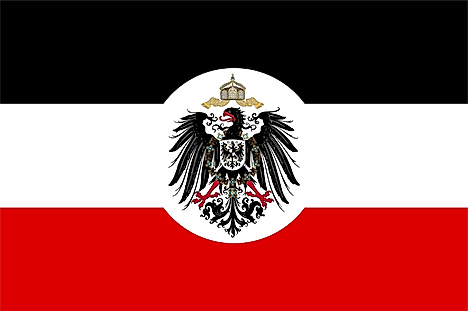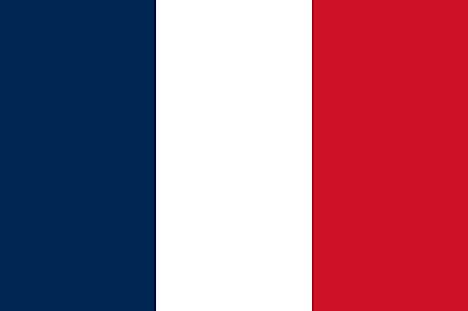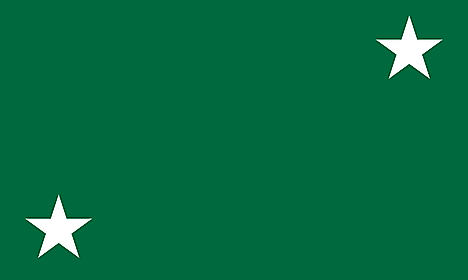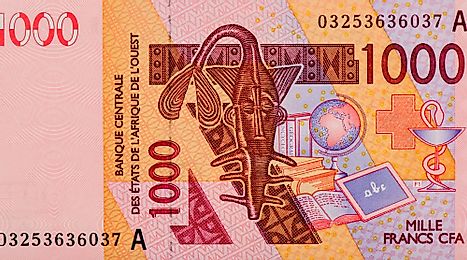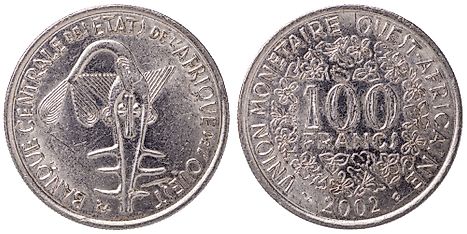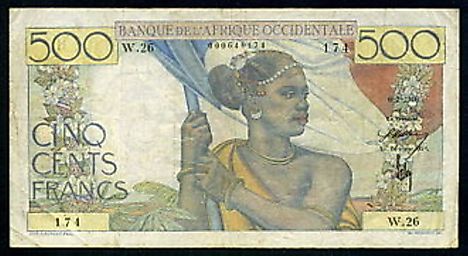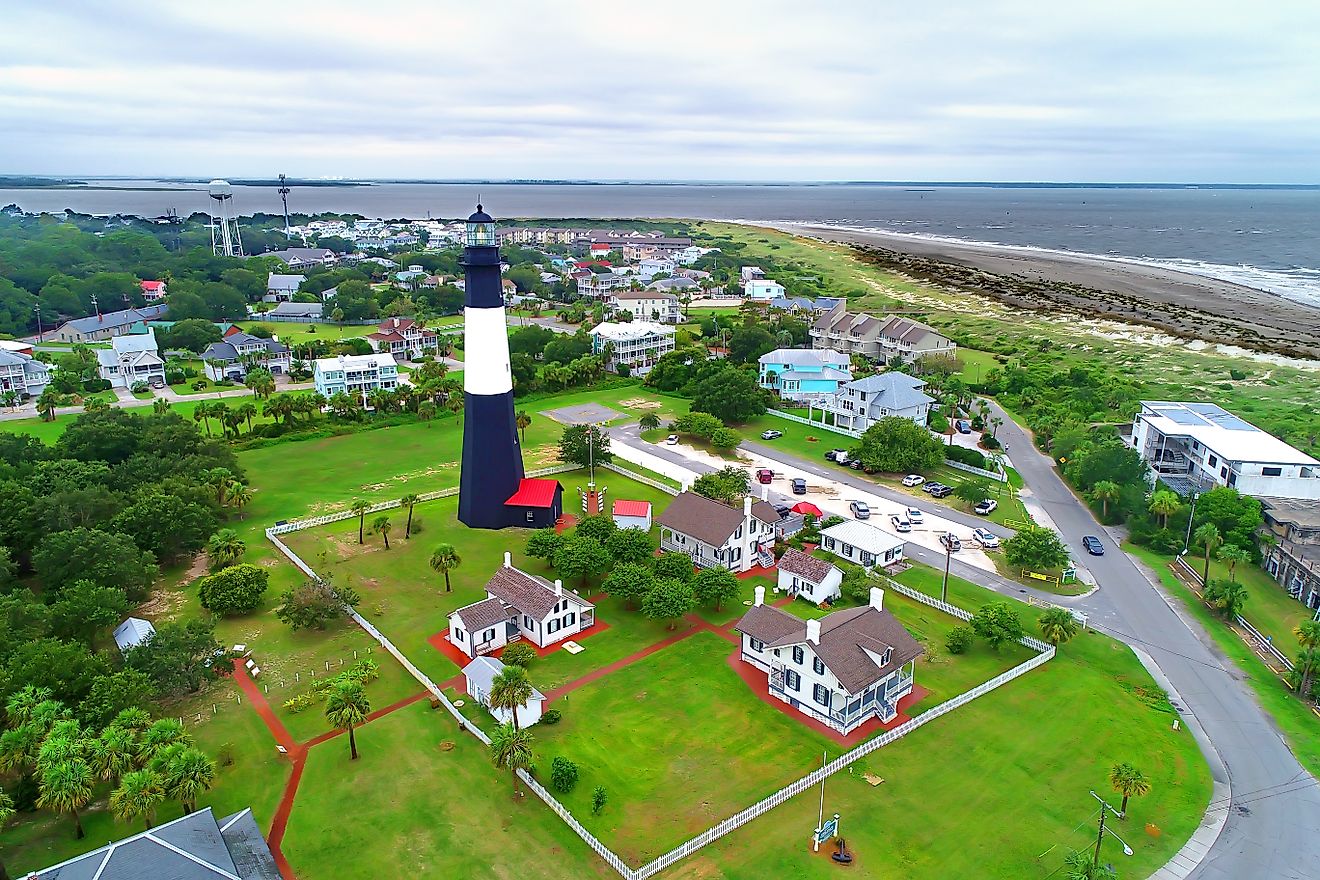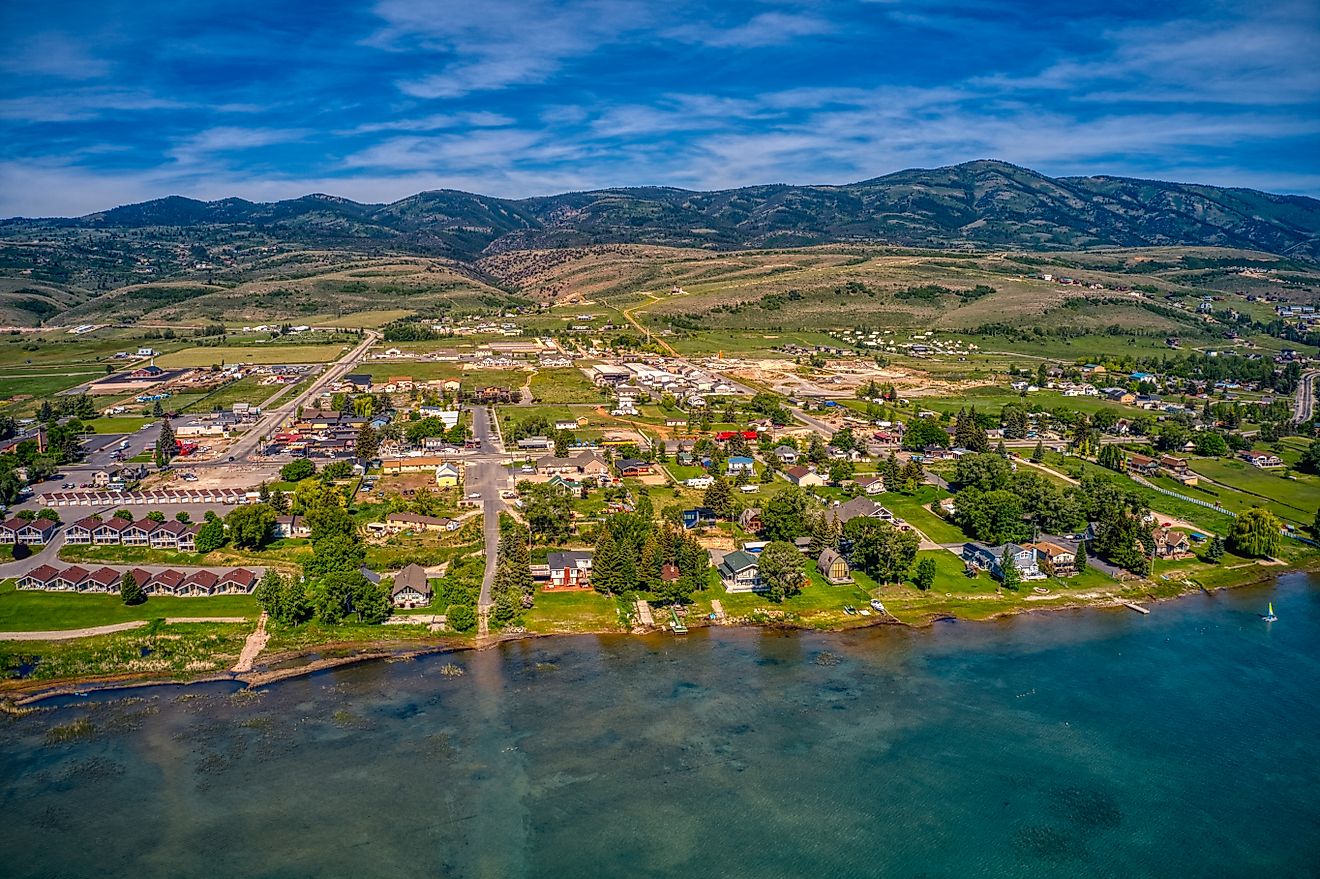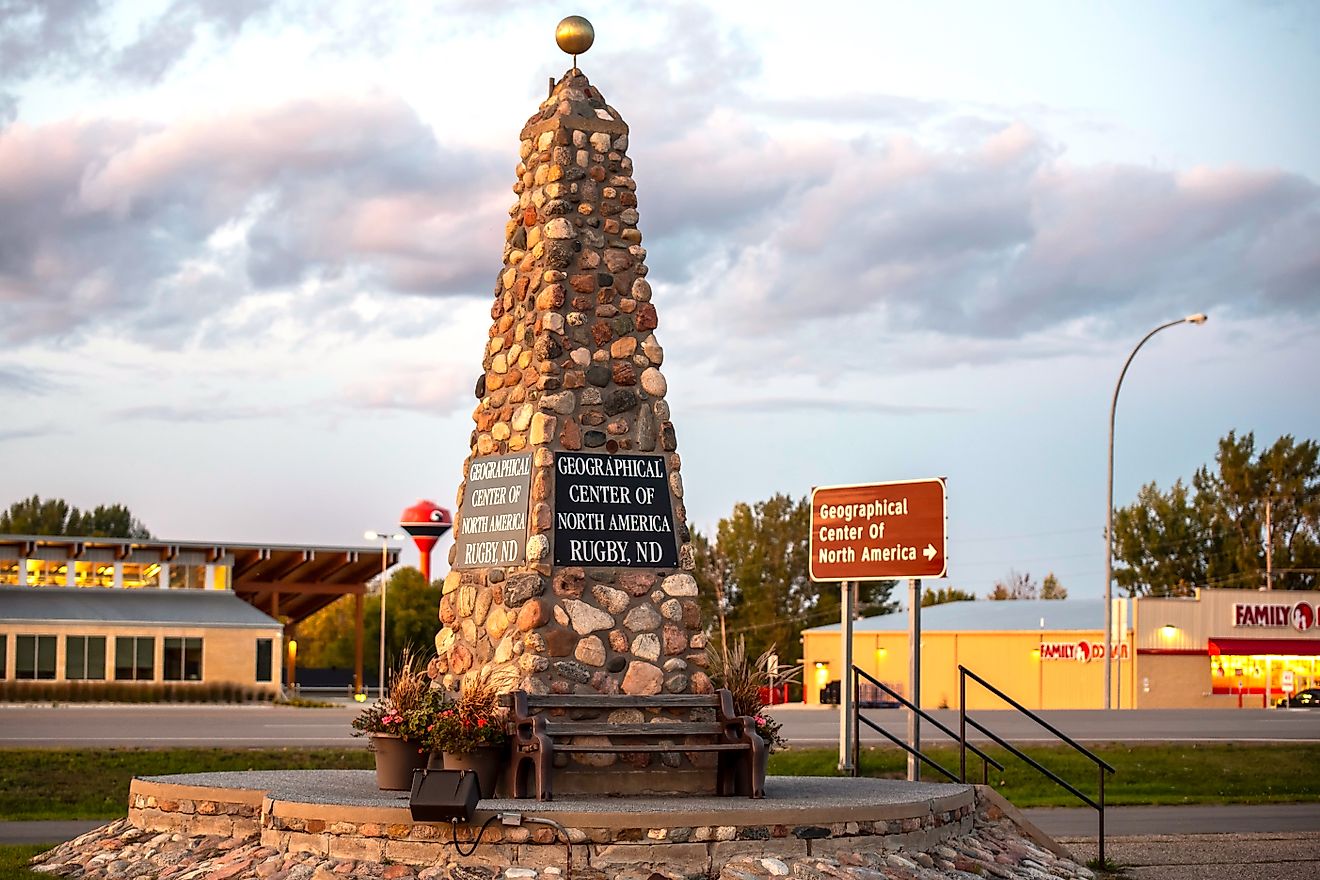Flags, Symbols & Currency of Togo
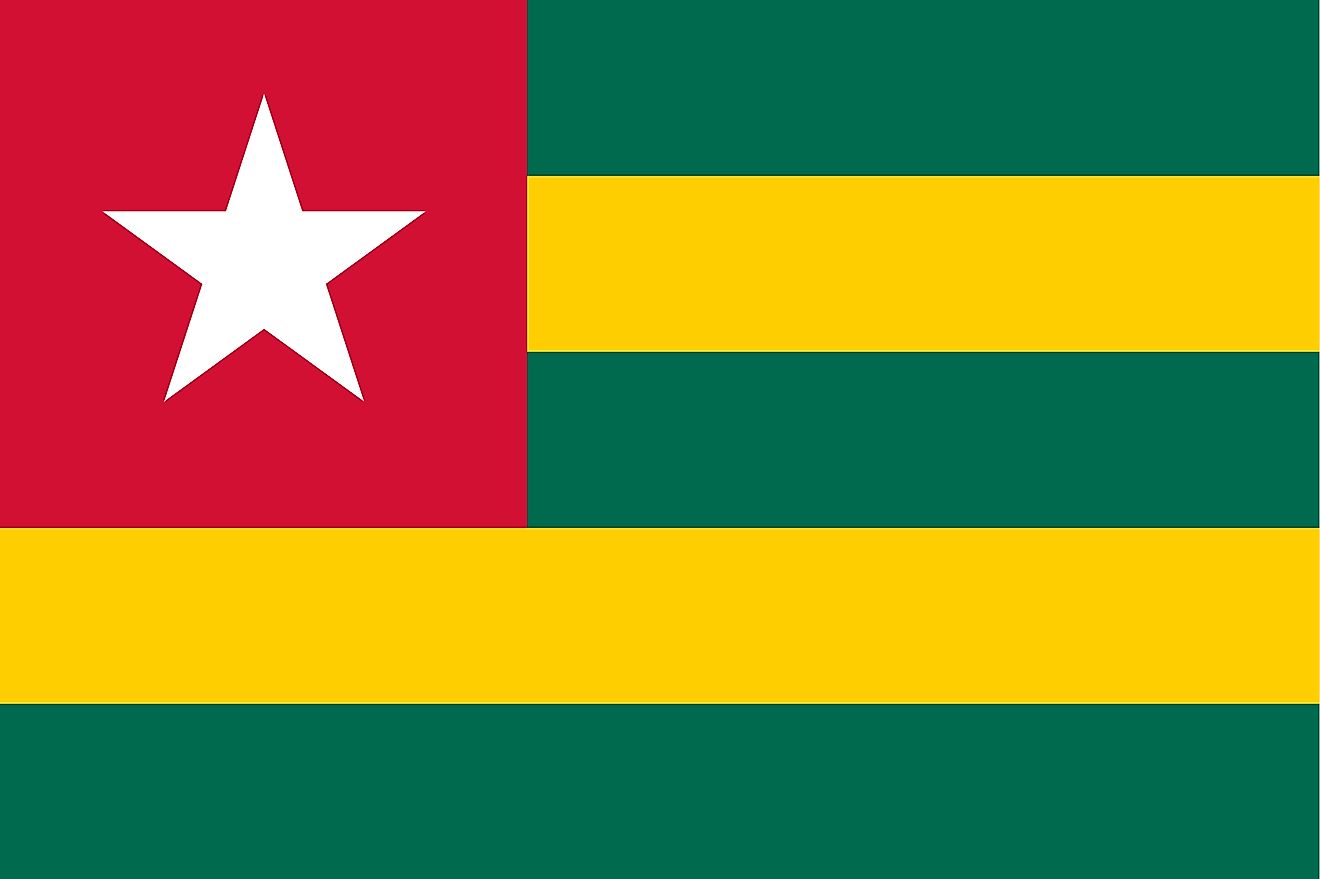
The National Flag of Togo was officially adopted on April 28, 1960. The flag has been designed by Paul Ahyi.
The National Flag is rectangular and features five horizontal stripes of equal thickness. The stripes alternate between green and yellow, starting and ending with green. A white five-pointed star ("Star of Hope") on a red square is placed in the upper hoist-side corner of the flag. The five horizontal stripes stand for the five different regions of the country. The alternating colors represent the diversity of the Togolese people, and the five stripes stand for action and the determination of the nation to overcome its obstacles. The red color is said to represent the bloodshed by Togolese martyrs during the nation’s struggle for independence. The red square is meant to express the loyalty and patriotism of the people as well as their love, charity, and fidelity. The green color represents agricultural, forest, and natural wealth and also symbolizes the hope and future of the nation. The yellow color represents mineral wealth and faith that hard work and strength will bring prosperity. The white color represents peace, wisdom, light, as well as purity. The five-pointed star symbolizes life and liberty. The flag has a proportion of 1:1.618 and is one of the few national flags to have irregular dimensions, along with Nepal and Iran.
History of the Flag of Togo
When Togo was a protectorate of the German Empire between 1884 and 1914, there was a proposal for a flag that had three horizontal bands of black, white, and red, along with a shield in the middle bearing two cobras and a palm tree. In 1914, British and French forces invaded German Togoland, which led to the creation of British Togoland and French Togoland. The flag of French Togo was used between 1916 and 1960 when the country was a mandate of France, and the flag was designed as a green rectangle with two white five-pointed stars, as well as the French flag on the canton. Between 1958 and 1960, Togo used a flag similar to the one used during the French Togo era, but it lacked the French flag on the canton. The Togolese Republic adopted its national flag on April 28, 1960. The flag of Togo features Ethiopia’s Pan-African colors (red, gold, and green) and mirrors the Liberian flag, which closely resembles the national flag and ensign of the United States of America. Togo's flag was designed by Paul Ahyi, one of Africa’s most celebrated artists of his time, in a contest to select the national emblem for the newly independent nation.
Symbols of Togo
The National Coat of Arms of Togo
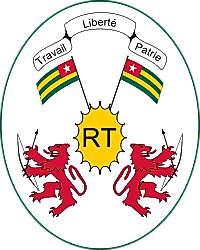
The National Coat of Arms/Emblem of Togo was officially adopted on March 14, 1962. It is composed of two red lions each holding onto a bow and arrow that represents the call for citizens to be active in defense of freedom. The two red lions are a symbol of bravery. A golden shield bearing the letters RT (République Togolaise) rests between the lions, and the national motto: “Travail, Liberte, Patrie” (“Work, Liberty, Homeland.”) is displayed on a ribbon above.
National Motto
“Travail, Liberte, Patrie” (“Work, Liberty, Homeland.”)
National Anthem
- Anthem Title: "Terre de nos aïeux" ("Land of our forefathers")
- Music Composer: Alex Casimir-Dosseh
- Lyricist: Alex Casimir-Dosseh
- Date of Adoption: October 14, 1992
"Terre de nos aïeux" ("Land of our forefathers") is the national anthem of Togo. The music of the anthem and its lyrics have been created by Alex Casimir-Dosseh. The anthem was officially adopted on October 14, 1992.
"Terre de nos aïeux" (French)
Salut à toi pays de nos aïeux,
Toi qui les rendait forts,
Paisibles et joyeux,
Cultivant vertu, vaillance,
Pour la prospérité
Que viennent les tyrans,
Ton cœur soupire vers la liberté,
Togo debout, luttons sans défaillance,
Vainquons ou mourons, mais dans la dignité,
Grand Dieu, toi seul nous a exaltés,
Du Togo pour la prospérité,
Togolais viens, bâtissons la cité.
Dans l’unité nous voulons te servir,
C’est bien là de nos cœurs,le plus ardent désir,
Clamons fort notre devise,
Que rien ne peut ternir.
Seul artisan de ton bonheur, ainsi que de ton avenir,
Brisons partout les chaînes de la traîtrise,
Et nous te jurons toujours fidélité,
Et aimer servir, se dépasser,
Faire encore de toi sans nous lasser,
Togo chéri, l’or de l’humanité.
Salut, salut à l'Univers entier
Unissons nos efforts sur l'immense chantier
D'où naîtra toute nouvelle
La Grande Humanité
Partout au lieu de la misère, apportons la félicité.
Chassons du monde la haine rebelle
Finis l'esclavage et la Captivité
A l'étoile de la liberté,
Renouons la solidarité
Des Nations dans la fraternité.
"Land of our forefathers"
Hail to thee, land of our forefathers'
Thou who made them strong,
Peaceful and happy,
Cultivating virtue and bravery
For prosperity.
Even if tyrants shall come,
Thy heart yearns towards freedom.
Togo arise! Let us fight without faltering.
Victory or death, but in dignity.
God almighty, Thou alone,
Hast made Togo prosper.
People of Togo arise! Let us build the nation.
To serve thee in unity
Is the most burning desire of our hearts.
Let us shout aloud our motto
That nothing can tarnish.
We the only builders of thy happiness and of thy future,
Everywhere let us break chains and treachery,
And we swear to thee for ever faith,
Love, service, untiring zeal,
To make thee yet, beloved Togo,
A golden example for humanity.
Hail, hail to the entire Universe
Let us unite our efforts on this immense building site
Whence will be reborn anew
Great Humanity.
Everywhere, instead of misery, let us bring happiness.
Let us chase from the world unruly hatred.
It's over with slavery and captivity.
At the star of liberty,
Let us renew the solidarity
Of the Nations in fraternity.
The Currency of Togo is the West African CFA franc
The current official currency of Togo is the West African CFA franc. Togo has been using the West African CFA franc as its currency since 1945.
Coins
In 1948 aluminum 1- and 2-franc coins were released, followed by aluminum/bronze franc coins in 1957 that had the addition of the Togo name. It is essential to note that the body in charge of releasing currency in Togo was the BCEAO Central Bank of the West African States as of 1959. In 1967 nickel 100-franc coins were issued, followed by the release of cupro-nickel 50-franc coins in 1972. The first steel 1-franc coins were released in 1976 to replace the aluminum ones, which were used until 1995. In 1992 the 250-franc was introduced, to be followed by the 200- and 500-franc coins in 2003.
Banknotes
At the introduction of the West African CFA franc, notes in use were in values of 5-, 10-, 25-, 50-, 100-, and 1,000-francs. The 500-franc notes were announced in 1946, followed by notes valued at 5,000-francs two years later. The Institut d'Emission de l'A.O.F. et du Togo took up the authority to produce paper money in 1955 issuing notes of 50-, 100-, 500-, and 1,000-francs.
The year 1959 marked the BCEAO retaking up the production of paper money by reinstating the 5,000-franc note. With this issue, BCEAO started specifying with a letter to show the issuing country. The 50-franc notes were last issued in the year 1959, while the issuance of the 100-franc was stopped in 1965. In 1972 the 10,000-franc notes were introduced, while the 2,500-franc notes were introduced in 1992.
In 2004, new banknotes were released as follows: 1,000-, 2,000-, 5,000- and 10,000-francs. The 500-franc coin was substituted in 2003 by notes. The 5,000-franc note was changed in color from blue to green. The new notes had security features and a modern-day look. More changes were done, including the issue of a 500-franc banknote in November of 2012. The changes were well received as it was a common feeling that the old notes were dirty and full of diseases.
Historical currencies of Togo
Germany was the colonial figure in Togo for some time. This fact explains why Togo used the German mark for 30 years from 1884. The year 1914 marked the change in colonial powers to British and French authorities, paving the way for the division of Togo into two Mandate territories, whereby the British side started using the British West African pound while the French side took up the French franc. The French franc was later supplemented by coins that were issued to represent the command territory of Togo, which were used sporadically until 1956. In 1945, the Financial Community of Africa (CFA) franc, was introduced to replace the French West African franc. The franc has been subdivided into cents, but none have been used so far. The CFA franc was the official currency in more than five West African countries with some of these countries still using francs while others, like Mali (French Sudan), stopped its use.
